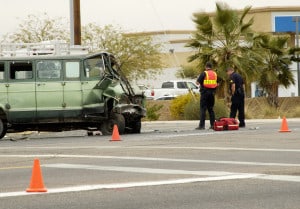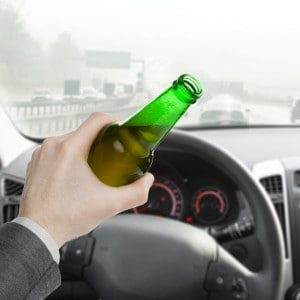Most of us have been affected by drunken driving in some way – whether through personal experience or through our acquaintance with someone else’s personal experience – and yet it continues to occur despite our awareness of the problem. In a society where it’s always “5 o’clock somewhere,” the legal ramifications of drinking and driving
are well established, and though we know that driving while under the influence is bad, we rationalize such a risky behavior. After all, it’s a fine line between a drink with dinner and being too impaired to safely drive.
Measuring BAC
BAC, or Blood Alcohol Content, can be measured by breath, blood, and urine tests. The accuracy of these tests is dependent upon a number of factors, and the choice of which test to use is most often based on convenience and portability. The technology available to law enforcement officials allows for a simple assessment in the field using a breath analysis device, more commonly known as a breathalyzer.
What is Considered “Drunken” Driving?
Most people can tell you what the “legal limit” is in their area. In Indiana, a BAC of at least .08% puts you over the limit. The amount of alcohol you must consume to reach these numbers is dependent on many factors, including (but not limited to) your gender, body weight, and rate/duration of consumption. In short, what puts one person over the limit may not have the same effect on someone else.
Drunken Driving and You
If you or a loved one has been the victim of a drunk driver, you know the impact firsthand. Every hour of every day, someone is injured or killed in a crash involving an impaired driver. In fact, an average of one in three people will be involved in a drunken driving crash in their lifetime. Those who manage to survive a crash often face long months or years of recovery and may never regain the quality of life they knew before the accident. They may never be able to return to their career, support their family, or care for themselves.
For the person convicted of impaired driving, the impact of such a conviction will have far-reaching consequences, beyond incarceration. A DUI/DWI conviction can result in a suspension or surrender of a driver’s license, which can result in loss of employment if a position requires driving as part of the job description. A job search can also be affected, since most employers conduct a criminal background check on potential employees. Even a first-time DUI offense can impact a person’s ability to obtain certain jobs, regardless if that person’s criminal record is otherwise clear. Some colleges and universities refuse admittance to those with a DUI conviction, and certain state certification and licensing entities, such as those for educators or physicians, prohibit certification for individuals with a DUI on their record. And for those whose DUI conviction is classified as a felony, certain rights – such as the right to vote, purchase or possess a firearm, or obtain a passport – are surrendered.
The Bottom Line
Alcohol affects a person’s judgment, depth perception, and the motor skills necessary to safely operate a vehicle. And while there are many home remedies for overindulgence, the fact is that coffee, cold showers, or exercising do not mitigate the effects of alcohol in a person’s body. The only cure for alcohol consumption is the passage of time. The human body, regardless of gender or weight, metabolizes alcohol at a rate of about one drink per hour. Consuming alcohol at a pace beyond that rate increases the potential for an individual to become a statistic. In fact, more than 10,000 Americans become a statistic to drunken driving each year, and those who survive an alcohol-related accident may never fully recover. While there is some legal recourse for those affected by an impaired driver, decreasing the number of alcohol-related accidents has the ability to positively impact the statistics nationwide.
If you or a loved one have been injured by the actions of a drunk driver, it can be to your benefit to talk with an attorney. Gerling has extensive experience in representing persons whose lives have been turned upside down by someone else’s decision to drink and drive.



